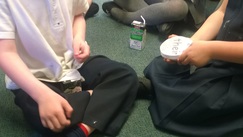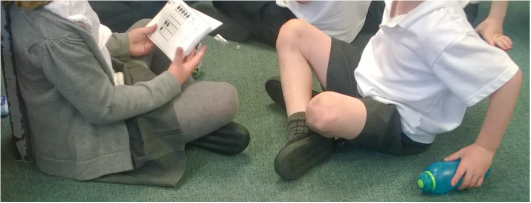 Although I always thought I'd prefer to teach older children, I've loved being in Primary 1. On Friday, I handed out all of the children's work (neatly organised into Literacy, Numeracy and IDL folders - pretty amazing for me!) for them to take home. Their most recent Daily Writing jotter will go to their new teacher, but all of their old jotters also went home with them. It was fun to watch the children look through their past work. They were all amazed and pleased at just how much they've learned this year. In no other stage is the progress so obvious and exciting. Yet one of the most important skills they've begun to develop this year is something that can't be seen in a jotter. They are starting to become self-directed, or independent, learners. It isn't perfect, and many reminders are needed, but the beginnings are there. As an early years teacher, I've encouraged independence by being consistent and continual repetition. Young children learn by imitating - so we need to make sure they have a solid foundation for 'productive imitation'. I also think they benefit greatly from some free time (we call it 'choosing time' in our class), where they are in the driver's seat and can choose what they want to do. In the picture above, one of my kiddos is quizzing another on his volleyball words. The 'teacher' just recently passed volleyball words herself, so it was lovely to see her helping her classmate (while also having the words reinforced for herself). During reading groups, we always have flashcards with key words from our book, and the children have been practicing ball words with me all year. They have seen this teacher-pupil interaction repeatedly throughout the year, so they can take ownership of it themselves. Similarly with our dot cards. The familiarity of the routine makes it easy for the children to reproduce it in their own play. In addition to this pair, another group of 4-5 children were gathered around another 'teacher' to guess how many dots. They can repeat these routines independently because they've seen and participated in them so many times. |
|
0 Comments
|
Categories
All
About MeI have taught from P1-P5 (K-4th grade). You'll find a variety of resources and ideas appropriate for these year groups as you explore this blog. I'm glad you are here and I hope you find activities, ideas or resources that are useful in your own class. Archives
July 2020
|


 RSS Feed
RSS Feed